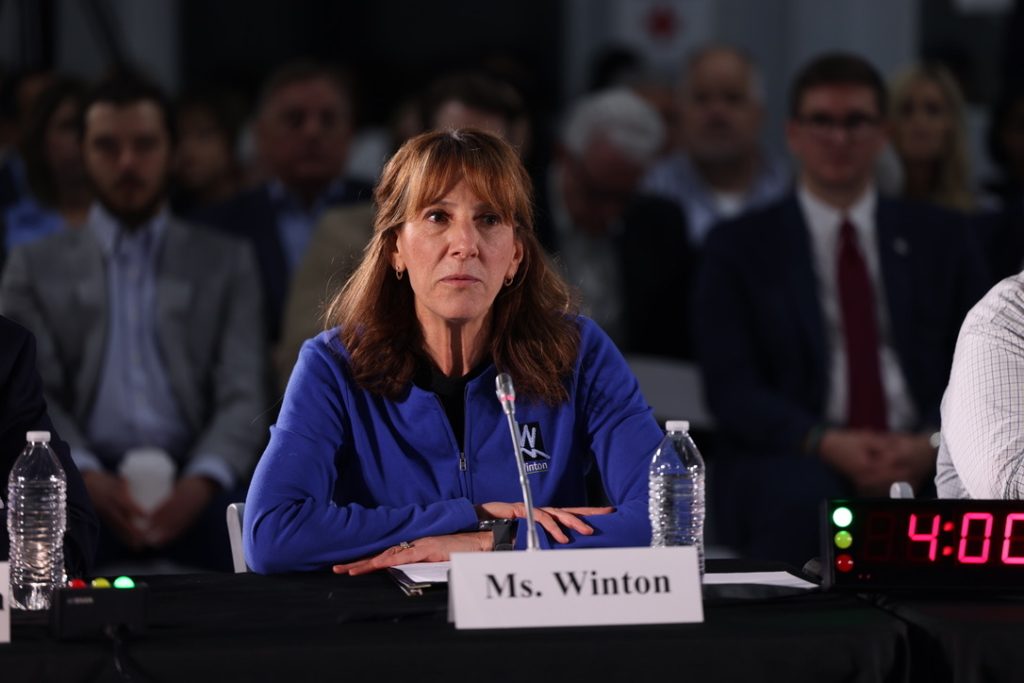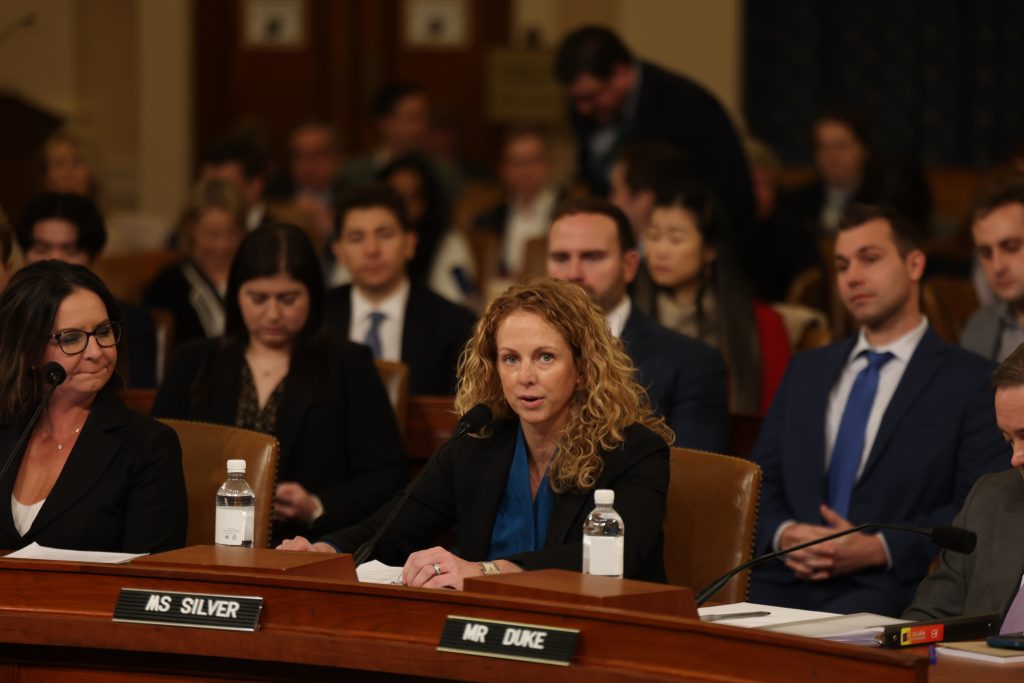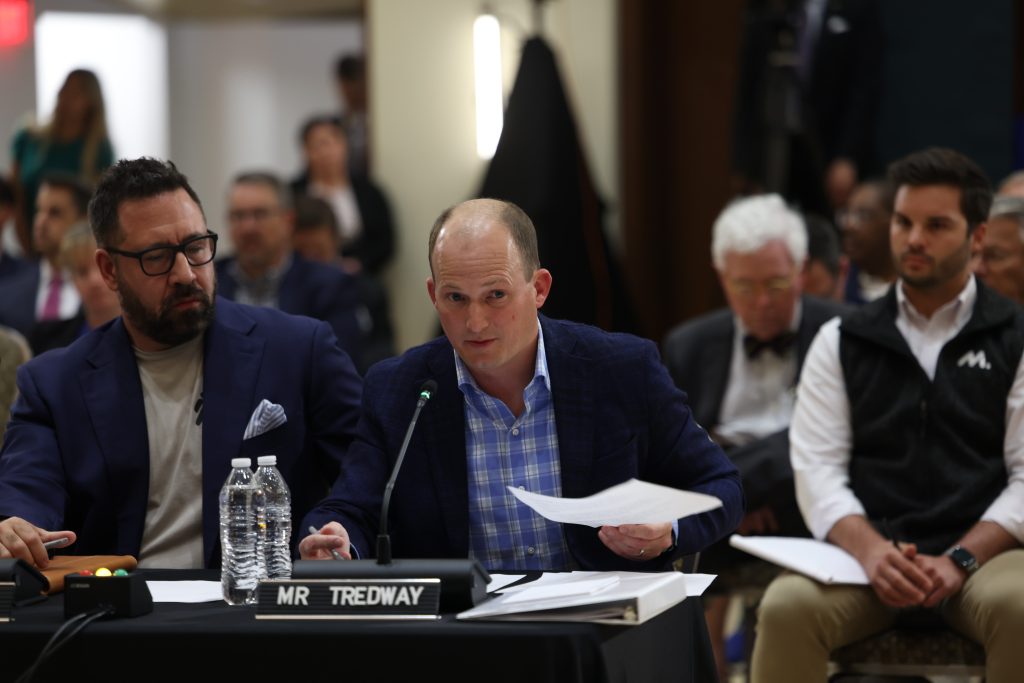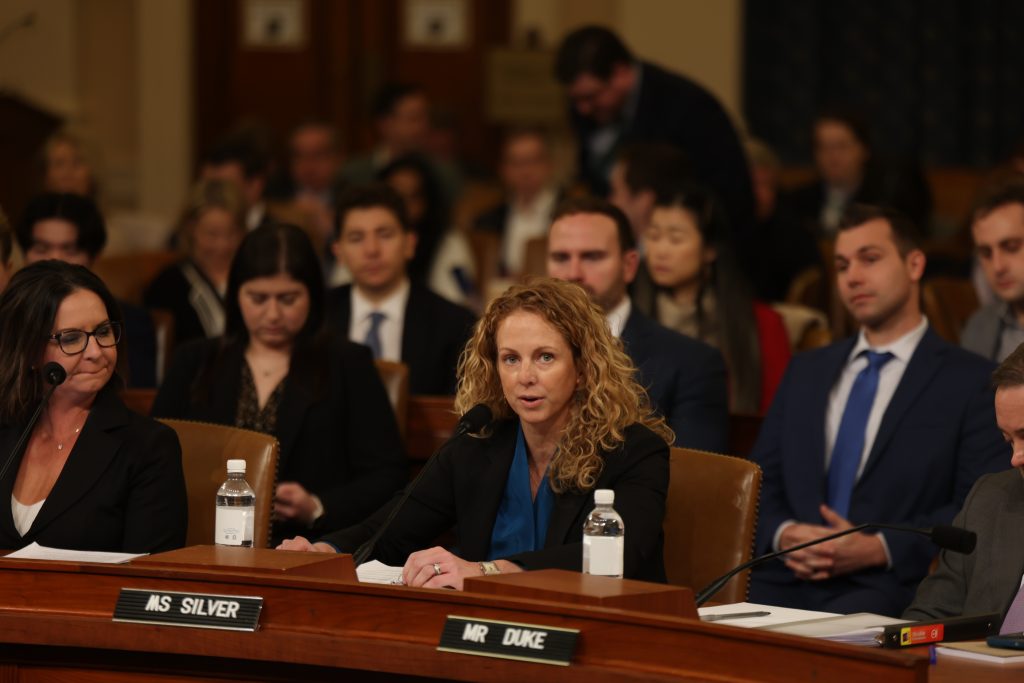Reconciliation bill renews immediate expensing for R&D, 100% immediate expensing for equipment and machinery, and interest deductibility, incentivizes construction of new factories in America, and lowers rates for those who build in the U.S.A.
Washington, D.C. – The One, Big, Beautiful Bill will boost domestic manufacturing and create new good-paying jobs, all while reducing dependence on foreign nations. Key pro-growth provisions from the 2017 Trump tax cuts, such as immediate expensing for research and development (R&D), 100 percent immediate expensing for equipment and machinery, and interest deductibility, are renewed, along with new 100 percent immediate expensing for construction and improvement of manufacturing plants that will help fuel investment and create new jobs that drive economic growth. Additionally, small- and medium-sized manufacturers will benefit from permanence and expansion of both the small business deduction and the doubled death tax exemption included in the 2017 tax cuts. Those same manufacturers will also receive more favorable tax treatment for production lines here in the U.S. with things like the usage of cash accounting and being able to fully deduct their interest expenses.
The One, Big, Beautiful Bill will help to preserve 1.1 million manufacturing jobs, $130 billion of employee income, and $284 billion of economic growth from manufacturers, according to a study from the National Association of Manufacturers. Manufacturing will help power economic growth, leading to a 5.2 percent increase in gross domestic product (GDP) over the next four years and 3.5 percent in the long term.
Ways and Means Chairman Jason Smith (MO-08) said:
“American manufacturers need to know that their taxes will not rise at the end of this year. Planning for new factories opening in the future requires confidence today that these American job creators will not pay higher taxes for investing in America. Renewal of immediate expensing for R&D, 100 percent immediate expensing, and interest deductibility, along with new tax break for manufacturing in America over a foreign country, will spur a Made in America boom. The One, Big, Beautiful Bill fulfills President Trump’s mandate to turn America into a manufacturing powerhouse that is not dependent on foreign countries like China. A competitive manufacturing sector is the key not just to creating good-paying jobs, but also maintaining the U.S.’s economic dominance against countries like China. President Trump’s agenda will turn Made in America into the norm, not a novelty.”
Key provisions helping American manufacturers:
Discovering the Next American Innovation: Immediate expensing for R&D helps American businesses, particularly manufacturers, discover innovations that will make them more productive, efficient, and competitive. China offers a 200 percent “super deduction” to its domestic businesses making the need to have a competitive tax code for U.S. domestic innovators more imperative. Investment and research sparked by R&D deductibility supports 21 million jobs. At a Ways and Means field hearing in Georgia, a local manufacturer shared the positive effect the Trump tax cuts had on her business, encouraging investment in new innovation and cutting-edge technology.

Lisa Winton, Georgia manufacturer: “In the year following passage of the Tax Cuts and Jobs Act, Winton Machine saw a 49 percent increase in sales, 53 percent increase in machinery shipments. We grew our overall labor payroll by nearly 150 percent and purchased a new, American-made CNC machine…
“For decades, we could immediately deduct 100 percent of our R&D expenses in the year they are incurred. But as of 2022, we can only recover a small portion of those costs each year…China allows a ‘super deduction’ for manufacturing R&D equal to 200 percent of research costs…”
Building the Supply Chain in America: Manufacturing is capital intensive and requires planning investments years into the future. The One, Big, Beautiful Bill renews pro-growth tax policy that attracted new investment and helped existing manufacturers grow in President Trump’s first term. Because uncertainty today could dampen investment in future years, a North Carolina manufacturer urged Congress to provide policies that would grow American manufacturing capacity.

Courtney Silver, small North Carolina manufacturer: “We need pro-growth tax policies that are permanent, that are consistent, that are predictable, to help us be able to grow. Our manufacturing supply chain in our country needs us. They need us to grow. They need us here.”
Helping Small Manufacturers Compete: The One, Big, Beautiful Bill makes the small business deduction permanent and expands it to 23 percent. This policy helps small manufacturers produce goods here in America while competing with large corporations. As a Pennsylvania manufacturer shared at a committee field hearing in Erie, the expiration of the small business deduction would place Mom and Pop manufacturers at a disadvantage. If this provision expires, small manufacturers could face a 43.4 percent tax rate limiting their ability to make the investments and hire new workers they need to grow.

Rep. Lloyd Smucker (PA-11): “I want to get back, Mr. Treadway, to the 199A. We’re going to have to build support for that…We want to take this out and have people understand, the American people really understand the importance of this policy. Do you have any ideas for us? How do we get out and talk about this?”
Tom Tredway, Pennsylvania manufacturer: “It makes a ton of sense. For small businesses like us competing against corporations, if we don’t keep that in place, we’re now losing another step on the ladder when it comes to how we’re taxed.”
Keeping Family Firms in the Family: Family-owned manufacturers will benefit from a larger permanent death tax exemption that is indexed to inflation. More small manufacturers will be able to remain open and create new jobs because of the One, Big, Beautiful Bill. When asked at a committee hearing, one family-owned North Carolina manufacturer explained the loss of the doubled exemption could have required the sale or liquidation of the business or its assets to pay the higher tax bill, resulting in a loss of manufacturing capacity and fewer jobs in her community.

Rep. Greg Murphy (NC-03): “I went out and toured a sweet potato farm that went through generations upon generations. Now we have the estate tax that is come due, that would drop, that would plummet. How does that work with your family? What things would you have to face if that were to occur?”
Courtney Silver, small North Carolina manufacturer: “In 2014, it could have drastically affected us… the expiration of the estate tax. My husband was the sole shareholder and owner of Ketchie, so upon his passing, it went to me, and I don’t know if I would have continued on with his legacy, if I would have had this large looming tax bill ahead of me. And I’m in a very capital-intensive business, which I kind of described earlier. So, a lot of times, we don’t have the liquidity in the business to pay such a tax. And I really view it as double taxation. I’ve already paid taxes on my assets. I’ve already paid taxes on my business on my income.”
